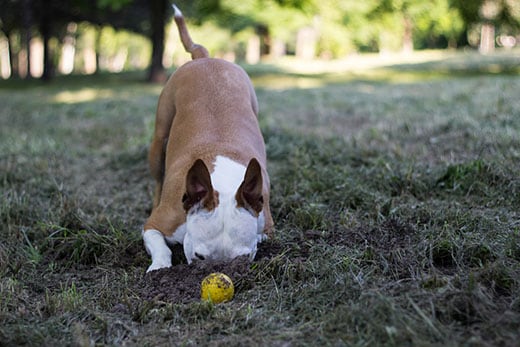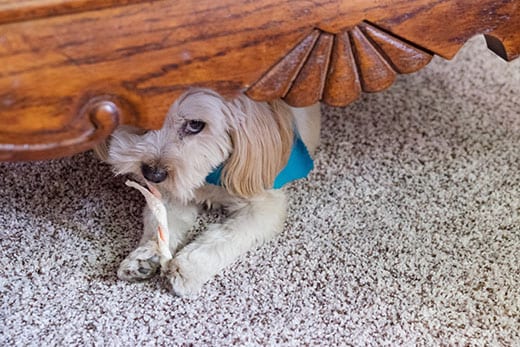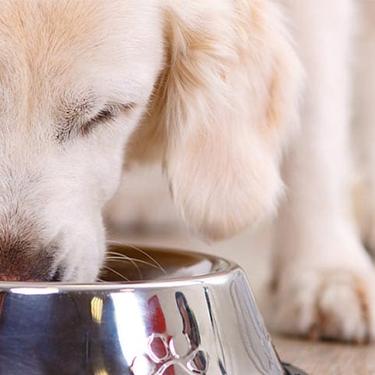
-
Find the right food for your pet
Take this quiz to see which food may be the best for your furry friend.
Find the right food for your pet
Take this quiz to see which food may be the best for your furry friend.
Featured products
 Adult Healthy Cuisine Roasted Chicken, Carrots & Spinach Stew Dog Food
Adult Healthy Cuisine Roasted Chicken, Carrots & Spinach Stew Dog FoodDelicious roasted chicken paired with tender vegetables in a succulent stew
Shop Now Small & Mini Savory Stew with Chicken & Vegetables Dog Food
Small & Mini Savory Stew with Chicken & Vegetables Dog FoodA delicious complement to the nutrition of Science Diet Small & Mini 7+ dog food
Shop Now Adult 7+ Perfect Digestion Chicken, Whole Oats & Brown Rice Recipe Dog Food
Adult 7+ Perfect Digestion Chicken, Whole Oats & Brown Rice Recipe Dog FoodScience Diet's breakthrough nutrition supports ultimate digestive well-being & healthy microbiome for dogs age 7+
Shop NowFeatured products
 Adult 7+ Senior Vitality Chicken & Vegetable Stew Cat Food
Adult 7+ Senior Vitality Chicken & Vegetable Stew Cat FoodImproves Everyday Ability to Get Up & Go
Shop Now Adult 7+ Tender Tuna Dinner Cat Food
Adult 7+ Tender Tuna Dinner Cat FoodWith delicious chunks in a decadent gravy
Shop Now Adult Savory Entrée Can Variety Pack Cat Food
Adult Savory Entrée Can Variety Pack Cat FoodPrecisely balanced nutrition with the delicious taste of savory minced chicken to help fuel the energy needs of cats during the prime of their life
Shop Now -
Dog
- Dog Tips & Articles
-
Health Category
- Weight
- Food & Environmental Sensitivities
- Urinary
- Digestive
- Joint
- Kidney
-
Life Stage
- Puppy Nutrition
- Adult Nutrition
- Senior Nutrition
Cat
- Cat Tips & Articles
-
Health Category
- Weight
- Skin & Food Sensitivities
- Urinary
- Digestive
- Kidney
-
Life Stage
- Kitten Nutrition
- Adult Nutrition
Featured articles
 Why Are Dogs and Cats So Cute?
Why Are Dogs and Cats So Cute?If waggy puppy dog tails and furry kitten yawns make you swoon, you're not alone. Why are cats so cute? And, dogs too! Let's find out!
Read More Does My Pet Hate Me?
Does My Pet Hate Me?Learn tips for bonding with your pet if you've ever thought, 'My dog doesn't like me, or 'Why do I have a standoffish cat?'
Read More Do Dogs and Cats have Belly Buttons?
Do Dogs and Cats have Belly Buttons?Learn whether cats & dogs have belly buttons like humans, what the function is, and if there are any health concerns associated with it.
Read More -


Your dog begs for a treat, only to hide it in the couch cushions or bury it in the backyard after you give it to them. Does this behavior leave you scratching your head? It's common for a lot of dogs, but why do dogs bury stuff? Keep reading to find out what might be motivating your dog's hoarding behavior and what you can do about it.
Why Do Dogs Bury Things?

A number of factors could explain your dog's burying habit. Here are a few of the most common reasons for this typical dog behavior.
Hereditary Instinct
Why do dogs bury things? Oftentimes, it's because they're wired to. It's an instinct that they inherited from their ancestors. When they manage to hunt down or scavenge a big meal, they hide the leftovers by burying it in the ground, both to help preserve it and to protect it from other scavengers, says The Spruce Pets. Although domesticated dogs may get meals like clockwork and have no need to stash food for later, the instinctual behaviors passed down through their DNA tell them otherwise.
Breed
Although all dogs have this instinct at some level, it appears to be strongest in dogs that were bred to hunt small game. Terriers and smaller members of the hound group, like dachshunds, beagles and basset hounds, tend to have a high propensity toward digging and burying objects. These dogs were intentionally bred to retain more of their hunting instincts, and it appears likely that this includes the instinct to preserve their "catches."
Anxiety or Possessiveness
Dogs are often soothed by the act of digging. As such, those who feel anxious or insecure may turn to digging and burying objects as a coping mechanism for their anxiety. In a multi-dog household, dogs who feel like there's competition for food and other resources, like toys, might resort to hiding their stuff to keep it safe. This can especially be true of tiny dogs, like Chihuahuas, who fear having their things taken away by larger pets. If you have a little dog, this may explain why you find treats, chew toys and pieces of kibble stashed between the couch cushions or underneath the furniture.
Boredom
All of that can explain why dogs hide and bury their food and toys, but why do dogs bury stuff that isn't theirs? If your dog seems to get a kick out of burying your things, it might be because they're simply bored, and they're trying to get your attention. To your dog, burying your things is a fun game, and you're invited to play along.


Tasty Tips
Curbing the Impulse to Bury Things

If your dog is making a habit of burying food or toys, it might be that they're being given too much at once, says American Kennel Club. Make sure you're not overfeeding or over-treating your dog and leaving them with a surplus of food that they feel like they need to save for later. And if they're burying toys instead of playing with them, try limiting the number of toys they have access to at one time, rotating them on a weekly basis. Exercising your dog regularly and providing them with plenty of attention can also help cut down on the impulse to dig — and reduce the temptation to steal and hide your stuff.
It's important to let dogs be dogs and give them opportunities to exercise their natural instincts. Rather than trying to train your dog not to dig and bury things at all, provide places both inside and outside where it's okay to exercise this behavior — a sandbox in the backyard or a pile of pillows and blankets inside, for instance — and turn it into a game of hide-and-seek that you can play together.


Jean Marie Bauhaus is a pet parent, pet blogger, and novelist from Tulsa, Oklahoma, where she usually writes under the supervision of a lapful of fur babies.
Related products
Related articles

Learn the the dangers of feeding your dog chocolate, which types are most dangerous, and what to do if you discover that they have consumed chocolate.

Proper nutrition for your pregnant or nursing dog is vital to her and her puppy's health. Learn what you should do provide her with the proper nutrients.

Learn about choosing the right dog food to help ensure your adult dog will receive the correct balance of nutrition.

Learn how today's wet dog food blends have gotten a face lift, and how you'll provide your dog the nutrition he needs in the form he loves.

Put your dog on a diet without them knowing
Our low calorie formula helps you control your dog's weight. It's packed with high-quality protein for building lean muscles, and made with purposeful ingredients for a flavorful, nutritious meal. Clinically proven antioxidants, Vitamin C+E, help promote a healthy immune system.
Put your dog on a diet without them knowing
Our low calorie formula helps you control your dog's weight. It's packed with high-quality protein for building lean muscles, and made with purposeful ingredients for a flavorful, nutritious meal. Clinically proven antioxidants, Vitamin C+E, help promote a healthy immune system.

